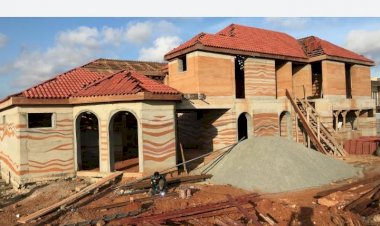The Role of SACCOs in Real Estate Development in Kenya
SACCOs play a crucial role in promoting real estate development in Kenya by providing financing, facilitating cooperative housing projects, and offering investment opportunities.

Savings and Credit Cooperative Organizations (SACCOs) play a significant role in facilitating access to finance and promoting real estate development in Kenya. With their member-centric approach and community focus, SACCOs have become an essential part of the real estate sector, providing affordable housing options and investment opportunities for Kenyans.
1. SACCOs as a source of financing:
SACCOs offer their members access to affordable credit facilities, making homeownership and real estate investments more accessible. By pooling members' savings and providing loans at competitive interest rates, SACCOs enable individuals and groups to secure financing for land, construction, and property acquisition. This financial support has played a crucial role in bridging the housing deficit and empowering Kenyans to become homeowners.
2. Cooperative housing development:
SACCOs have ventured into cooperative housing development projects, where members pool resources to construct affordable housing units. These projects often involve the purchase of large tracts of land, which are then subdivided into plots for individual members. By leveraging economies of scale and collective bargaining power, SACCOs can negotiate favorable terms with developers, contractors, and suppliers, resulting in cost savings for their members.
3. Investment opportunities:
SACCOs provide investment platforms for members to diversify their portfolios and earn returns from the real estate market. Some SACCOs establish real estate investment arms or partner with reputable developers to undertake commercial and residential projects. Members can invest in these ventures, benefiting from rental income, capital appreciation, and profit-sharing opportunities. Such investment avenues enable SACCO members to accumulate wealth and enhance their financial stability.
4. Challenges and mitigation strategies:
Despite the positive impact of SACCOs in the real estate sector, several challenges exist. Limited capital and resources, inadequate governance structures, and regulatory constraints can hinder the growth and effectiveness of SACCOs in real estate development. To address these challenges, there is a need for capacity-building programs, improved regulatory frameworks, and enhanced collaboration between SACCOs, government agencies, and other stakeholders. Strengthening governance, risk management, and financial reporting systems within SACCOs is also crucial.
5. The role of government and partnerships:
The Kenyan government recognizes the importance of SACCOs in addressing the housing deficit and promoting real estate development. It has introduced various policies and initiatives to support SACCOs, such as the establishment of the Kenya Mortgage Refinancing Company (KMRC) and the Affordable Housing Program. Collaboration between SACCOs, government agencies, and private sector entities is vital to harnessing the full potential of SACCOs in the real estate sector.
SACCOs play a crucial role in promoting real estate development in Kenya by providing financing, facilitating cooperative housing projects, and offering investment opportunities. Through their member-centric approach and community focus, SACCOs contribute to addressing the housing deficit, promoting financial inclusion, and fostering sustainable development. However, addressing challenges and strengthening partnerships with government agencies and other stakeholders are essential for maximizing the impact of SACCOs in the real estate sector and ensuring long-term success.
If you have a real estate press release or any other information that you would like featured on African Real Estate Blog Post, do reach out to us via email at [email protected]































